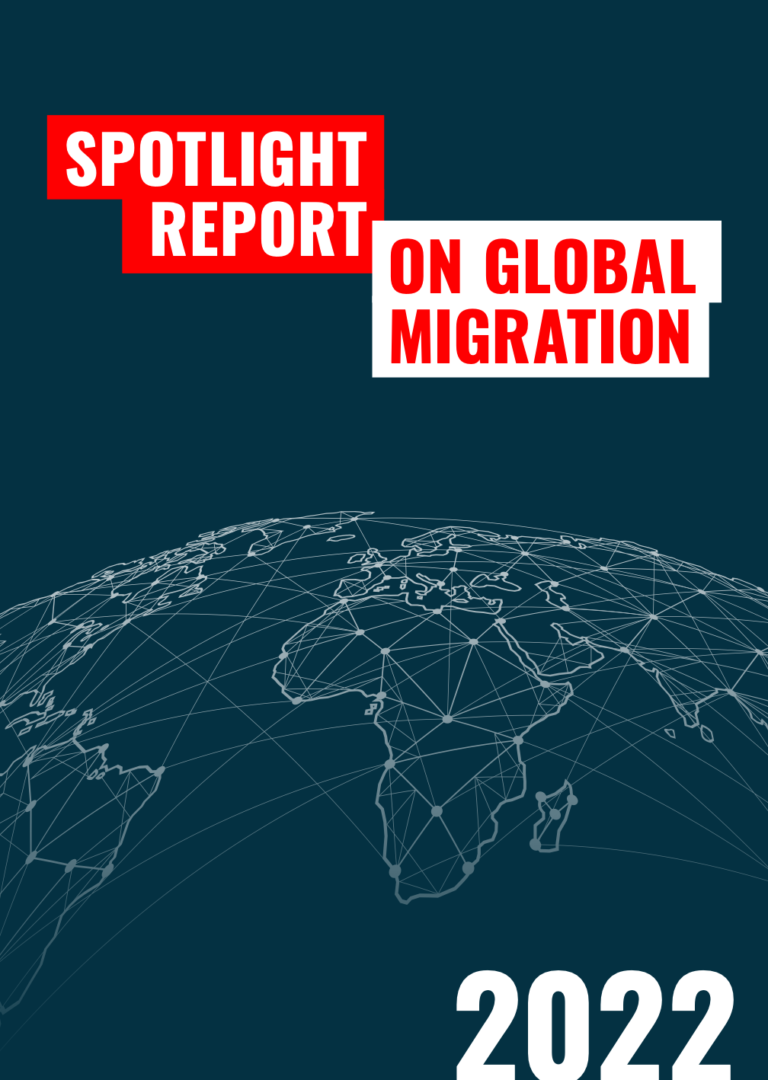Rampant labor exploitation in temporary migration schemes, climate crisis, prevalent vaccine apartheid, trag- edies at borders and in detention centers, everyday pre- carities of undocumented migrants, and the deplorable working conditions of many migrant workers unequivocally indicate that we are far from realizing the Global Compact for Migration (GCM) vision of a ‘safe, orderly, and regular mi- gration’ governance system.
The COVID-19 pandemic has emphasized the deep fault lines in our world and added to it by exacerbating na- tionalism, xenophobia, racism, and fear of outsiders. While migrants work in all sectors, an overwhelming majority are employed in temporary and precarious jobs and have nom- inal or no labor rights. Those migrants in jobs that were la- beled as ‘essential’ or ‘frontline’ continued to work but often without appropriate preventive gear, economic incentives for overtime work, or hazard pay. Despite the rhetoric of ‘building back better’, there has not been any multi-state grouping to discuss an urgently-needed new social contract.

